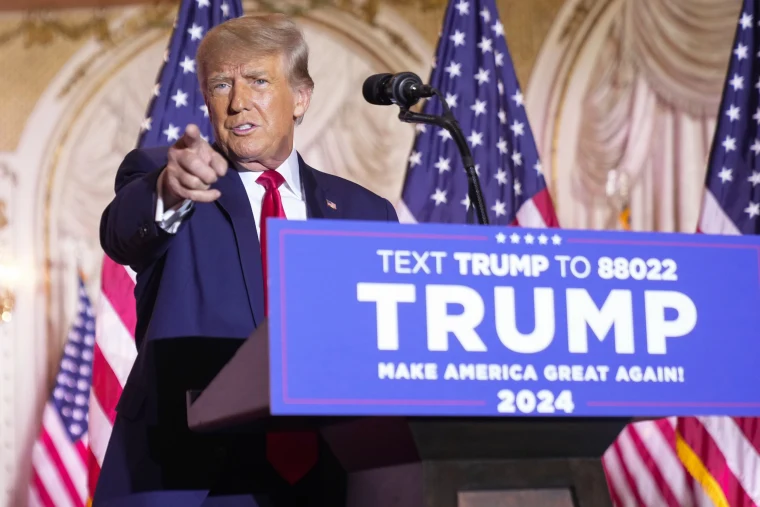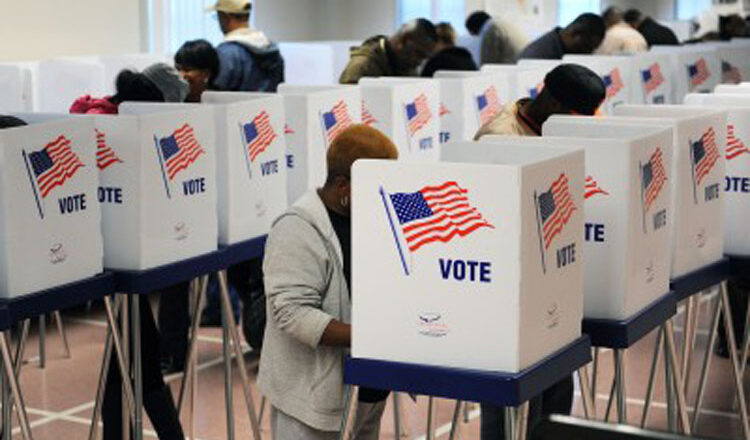The 2024 United States Presidential Election, to be held on Nov. 5, 2024, is now less than a year away. While the process is still in its early stages, some candidates are emerging as more prominent than others.
Following incumbent President Joe Biden’s announcement of his re-election bid, he is the most likely Democratic candidate and faces no serious challengers. On the Republican side, Donald Trump is the most likely candidate, with more support than the other candidates combined. The Republican Party is currently caught up in division, making it difficult to single out any other serious challenger.

However, recent polls indicate unfavorable opinions towards both parties’ front-running candidates. Pessimistic sentiment towards them is only increasing. According to an NPR Marist Poll, 65% of voters do not want Biden to be president again, and 60% feel the same about Trump. A lofty 14% are “double haters,” who do not desire either to win.
The most cited rationale for these results is age. A Washington Post ABC Poll found that half of its respondents said that both men are too old to serve another term.
For the past several decades, the baby boomer generation has had a disproportionate amount of political power. This is exhibited by their continuous authority in the position of president from Bill Clinton back in 1992 to now, except Biden, who is of an older generation than boomers.
In addition to age, there are other possible issues, including the lack of representation in both candidates for marginalized communities.
“It doesn’t appear that in this election, we’re going to have that level of choice,” Mr. Robert Moyer, Upper School history teacher, said, talking about a demographic-based choice: generation, gender, and race. “The choice is going to be between two older white men”.
“In a democratic government, it is the people who are empowered to represent us as a grand majority,” Grace Taylor ‘24 said. “When that’s the case, a man or woman is in power and making decisions for us… For this reason, it’s important to have people that represent your ideas, your age, and your perspectives.”
Younger generations don’t share the same priorities and interests as baby boomers. A contest of ideologies is inevitable between the traditional generation of baby boomers and the more diverse and liberal rising generations.
“There are certain issues younger voters and students are more aware of because they face them every day,” Taylor said. “To say, ‘Fifty years from now, we might not have enough clean water.’ That’s our future. We need to have people making changes and policies that will help people who are young now.”
Issues that appear more urgent to rising generations— climate change, abortion, inflation, social security, and others— are being overlooked by a group of people much less impacted by their long-term effects.
For example, a high inflationary environment is more important to the younger generations who do not have the financial means to afford higher prices. A poll in June by Bankrate found that 30% of Gen Z and 28% of millennials have no emergency savings versus 23% of Gen X and 17% of baby boomers.
The top candidates right now are the same as from four years ago. Having been with the power structure for the last fifteen years, they are stepping up again this election.

Acknowledging the in-party popularity of the two frontrunners, many other Republican candidates have shifted focus to advertising themselves as a potential running mate for Trump, establishing more diversification in other governmental roles as a possibility.
In the 2024 election next year, upcoming voters in the GA student body may encounter both familiar and new faces.
Works Referenced:
- https://www.bloomberg.com/news/newsletters/2023-11-06/biden-trump-rematch-in-2024-election-americans-want-more-choice
- https://maristpoll.marist.edu/polls/2024-presidential-contest/
- https://www.washingtonpost.com/tablet/2023/09/24/sept-15-20-2023-washington-post-abc-news-poll/
- https://www.independent.org/publications/tir/article.asp?id=1831
- https://www.census.gov/newsroom/press-releases/2023/population-estimates-characteristics.html

